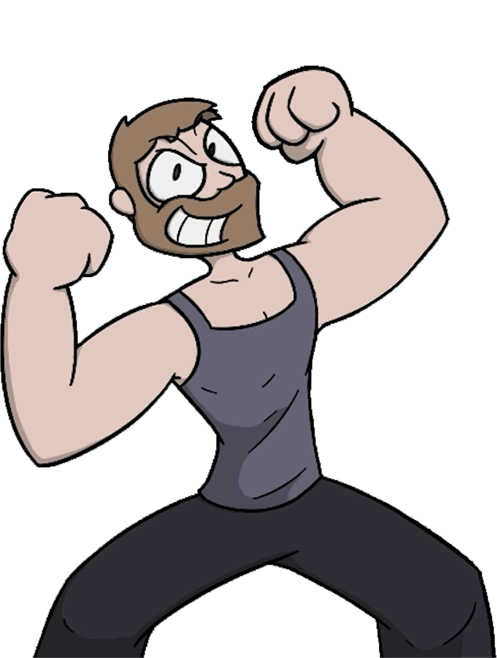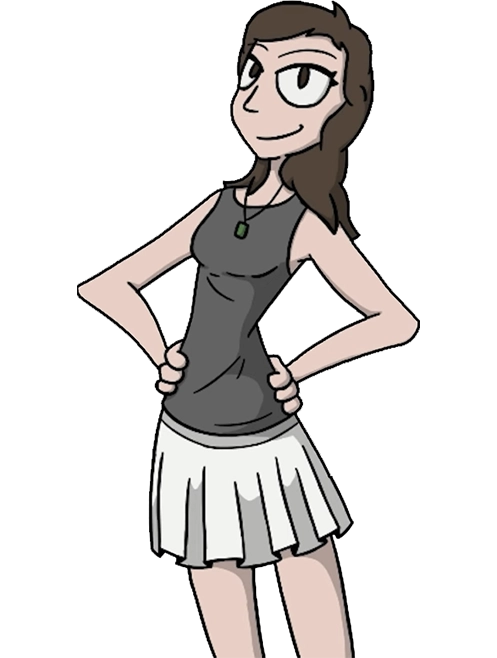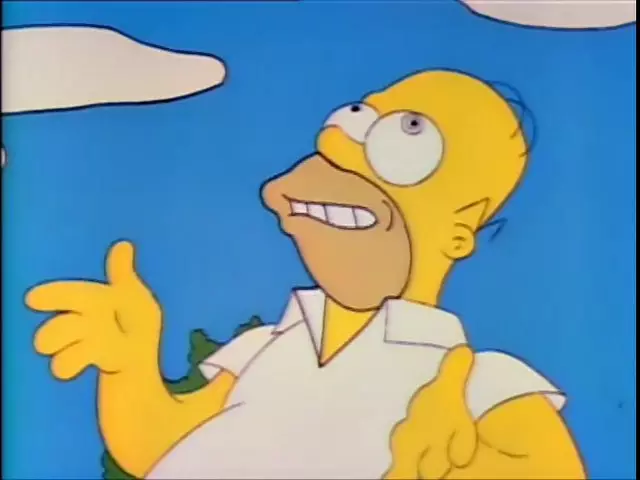My Recollection
Left-handed pinking shears. That didn’t hurt very much. Ooowaaah.
It was when they all dropped to their knees and began hammering the riff to We Will Rock You into the PCYC floor, while a buzzcut coach shouted at them about tomorrow’s tournament, that I knew I’d been lied to about stereotypes.
The first combat style I ever learned was wrestling. This choice was an extension of two things: a love of the pro variety, and a knack for grappling in the backyard kumites we held when all other forms of juvenile conflict had grown stale. When nobody knows what they’re doing, a man with half a clue is a genius. Among the sweat and chlorophyll stinking roster of pubescent backyard brawlers, I was near undefeated because my close readings of WWF matches left me with a rudimentary grasp of a few submission locks, and I’d invented my own form of sleeper I could apply when I was on my back. This turned out to be the triangle choke, a move I did not innovate, though my disappointment at this was alleviated by knowing that it was so too a real thing and that squeezing someone towards my balls wasn’t gay.
Wrestling has weight classes for a reason, as the small group of mismatched human shapes that attended the Milton PCYC made clear. Among the more interesting were an 11-year-old Indian boy who outweighed me by one kilogram, and a being that reminded me of those trapezoidal weights with "1 Tonne" printed on them that you’d see in cartoons. He moved like his species was mostly aquatic and was unbeatable because his backfat prevented both shoulders from touching the ground at once. It’s impossible to learn how to accurately shoot for a leg when the owner looks like King Kong Bundy sitting on the McGuire twins, so our class was more about heart than it was actual talent. Then this one day we get told that some Americans are visiting.
America is the place on TV, and when it’s been that way your whole life, you may as well be getting told some Klingons are coming for a chat. Besides undoubtedly being better than us, I didn’t know what to expect, and quelled any of my wilder ideas with reminders that stereotypes were dumb.
The two kids from Texas, whom everybody, including the teachers, called Texas collectively, looked like a Jay and Silent Bob duo made of Silent Bob and his own even silenter Bob. Their presence here meant that somewhere two athletic kids were wandering around the big Roadie meet with confused looks on their faces. One of them fell over a mat while trying to move it, and the other kicked it for the insult. That’s the most I saw them move, and they spent the weekend glued to a wall, peering out from under their forehead rolls.
There was a kid in a mask, one of those ones like Cody Rhodes wore for a while. One that you wear when you want to participate in some kind of sport, even though you are injured or prone to injury. One that indicates that, though you may not be as physically adept, you are twice any man in spirit. At any given point, the child had two older kids sitting on him and once it was four. It’s the most buttocks I hope to ever see pressed against a child. The mask that was to keep his cheek bones from collapsing spent more time flying through the air than it did on defending his face.
The turn of the century was a big time for feral whites. The rap world, an inarguably cool cultural juggernaut that screamed in the authentic voice of the downtrodden, had long been closed to them by the garden variety racisms that permeate the mudsills. Then came Eminem, and his monstrous success gave the people who shared so much with the black people they hated that they took to him like a prophet. I found this out after meeting a pair of missionaries for the Church of Marshal Mathers of Latter-Day Saints. They had the kinds of buzzcuts that leave some specific patch out. These absurd tufts exist less as aesthetic choices and more like anglerfish lures, drawing confused onlookers into “what are you looking at?” range. Draped in bootleg shirts they were a few years of type-2 diabetes away from fitting, they asked if I’d heard the good news. When I told them that I didn’t listen to Eminem, they demanded to know why. Like their funny little side bangs, this question didn’t want an answer so much as it wanted the kind of scuffling slap-fight the aggressively untrained need to keep their sense of worthlessness at bay. They were hauled off by some religiously intolerant teacher and I never saw them again.
I went 2-2 for the weekend. My defeats were absolute, knots pubescent but trained muscle wrapping a confused line of cooked pasta into a knot. One victory was fairly humdrum, an opponent not realising that I was a flexible as I was, allowing for me to reposition and press for a pin. My second win was where I damn near Misawa’d a kid.
Mitsuharu Misawa was a god of Japanese puro, and the 90s style he was a pillar of was such a brutal mistress that it worked the man’s neck to the point it finally broke in the ring at the age of 47. It wasn’t even that bad a bump, but the thing about wrestling is that one awkward drop can do more damage than a skull stomping and with none of the malice.
The kid was better than me. He knew the fundamentals, he knew the techniques, hell, he had the staggering privilege of training with someone his own size. I had a predilection for grappling but was otherwise just a ball of animal reactions whose size made every bite more than I could chew. He went for my legs and I dropped my hips, a sprawl is the technical term, but I’d picked it up in the natural laboratory of backyard bruises. My grip was high from the intercept, around his chest and under his arms, but he continued to press forward, correctly assuming I wasn’t skilled enough to beat him on the ground.
I planted my heels and hoisted him the wrong kind of vertical. For a moment, he was weightless, and I was the strongest boy in the world. With a rival male aloft, physics and brute animal nature demanded to see his head hit the ground. The glottal stop cutting a surprised shout short as his head crashed into fifteen millimetres of illusion of safety twisted my guts and still does to this day.
He doesn’t move. My arm is being raised but he’s not moving. Have I killed him? Adults are running over. Is he gonna be confined to a wheelchair? Christ, over what? This? I’m close to tears, believing I’ve cut a promising young life short, as he starts to stand. My relief was tempered by the fact that he couldn’t move his head. The adults, all but one of whom ran right past him to congratulate me on my win, assured me it was probably fine.
It was a five-point throw into a pin. Nobody cared about the potential cripple and I never saw him again. A man wearing a cowboy hat indoors and a belt buckle the size of my head insisted on shaking my hand.
Stereotypes can be crude tools that bludgeon the truth of someone’s existence out of them, but damned if you aren’t gonna meet a few.
The Episode
We’re a pattern seeking species. From picking fruit based on its appearance to lurking somewhere where ambulatory meat likes to drink, the millions of years between goo and now have hammered into us an expectation of structure. Like possible chess moves, the universe is a structure but one so dazzlingly complex that it may as well be chaos. Into this chaos, we inserted the gods. We also inserted them into our narratives.
The ex machina in deus ex machina refers to an actual machine, a crane operated off-stage to lower some actor playing a deity into the scene in Greek plays. Modern narratives need to hide their gods with cause/effect plotting and internal logic, not the classics. The audiences had no frames of reference to understand the vast unknowable, so happenstance bullshit was an inherent part of narrative. Imagine if nearly all modern movies ended with Jesus or a disciple showing up and fixing things for whichever character prayed the best. That’s basically Euripides’ entire body of work.
We have a vastly superior understanding of the world now, and this has bled into our fiction, but the gods aren’t quite gone.
Homer and Ned’s relationship, and Homer’s jealousy, was the core of Dead Putting Society and it’s the core of When Flanders Failed. The former hated Homer for his jealousy, even as it presented it sympathetically. He was an oaf, compelled to bully his son into a competition his heart wasn’t really in. It wasn’t about Homer learning a lesson because, even as the credits rolled, he was unable to let go of his need to see Flanders suffer.
Dead Putting Society was about Homer’s animosity toward Flanders, but it was told through the medium of Bart and Todd. This was done because making your primary hero/protagonist a villain needs to be done in a fashion that allows him to shift back. Homer was a jealous jerk and he suffered for it, but Flanders was never the protagonist because Homer was the antagonist to Bart. This keeps the ultimate narrative focus on Homer as the main character and brings out the jealousy as a flaw within a whole person as opposed to wedge driving us toward Flanders.
When Flanders Failed has no buffer characters, Homer’s jealousy of Flanders and his negative actions directly involve or are directly about him. This puts the narrative in a precarious situation re the aforementioned need to maintain Homer’s acceptability to the audience while delving into his villainy. His ability to function as a sympathetic character for when he’s the heroic protagonist necessitates an audience that can still find him sympathetic, so his forays into villainy need to be indirect. To solve this problem, the writers turn to the gods.
There’s a twofold approach to Homer’s villainy in this episode: the wish and his opting to not tell people about the Leftorium. Beginning with the latter, deciding to not tell people about Flanders’ struggling business is active sabotage (I maintain that not telling Burns was justified because he was being a cunt, but that isn’t made relevant to the plot, so I’ll let it pass), but a sabotage with softening factors. We treat omission as a lighter sin than a lie, so Homer’s opting not to tell people about the Leftorium isn’t as bad as him telling people not to go there. The second softening factor is the matter of the former.
Wishes are absurd. Just try describing a wishbone wish to someone and have it not sound deranged. THE CHICKEN BONE GOD FAVOURS ME! It verges on haruspicy. But we are still a pattern seeking species so we will create connections where none exist because the idea that two data points shining like stars in the night sky being unrelated rubs our brains the wrong way. Wishing harm on someone is mean in intent, but it doesn’t do anything. Naturally, the episode doesn’t construct the wish as having some actual power, but it presents it as having power over Homer, and this god they use to diminish Homer’s agency, saving him from villainy.
Every time he opts not to tell someone about the store, he recalls the image in his head from the wish. It’s not Homer deciding to thwart Flanders’ business plans because he treats the wish as a governing force, a contract he has to adhere to. This is fucking ridiculous, but there are enough people who still adhere to psychics and other absurd nonsense for Homer’s behaviour to appear normal within his cultural milieu. Rather than a series of calculated acts of assholery, he made one poor choice that he has to atone for.
And atone he naturally does. All of Homer’s negative personality traits are fundamentally animal and these have great power over him because he is too stupid to conquer them. Like a naughty dog, they seem lesser through their lack of human planning. Homer wanted Flanders to fail because he felt that way, he didn’t really think about it. He sees success and it hurts him, so he wants to lash out, but the second he sees Flanders in a bad way, his empathy overwhelms him. Combine stupidity with magically diminished responsibility and you just can’t stay mad at him.
Which is just as well. Dead Putting Society smartly ended without any resolution to the core jealousy because that is a family sitcom narrative pillar. When Flanders Failed, harkening back to my recent points about the irregular serialisation of sitcoms, opts to air this jealousy. Once out, it needs to be resolved for Homer to return to his good-guy status, so the show ends with Homer and Ned on very friendly terms. The Leftorium remains in business, but Homer and Ned’s relationship resets.
A minor scratch mightn’t ruin a car, but the carelessness that caused the scratch eventually will. In the long term, the emotional resets will take a toll on the show, but within the microcosm of this episode, it’s the only natural, if corny, resolution. When Flanders Failed is quite a good story about the pair, as it establishes how ultimately superficial Homer’s jealousy is, which serves as an important counterpoint considering how much of it we see, but it still doesn’t patch over its continued narrative use. But if Homer is dumb enough to think a chicken bone wish can ruin a business, he’s probably dumb enough to move between emotional extremes without noticing the contradiction.
Yours in saying bye bye to money, Gabriel.
Jokes, Lines, and Stray Thoughts
The episode title is a play on In Flanders Field, a poem about World War 1. It is a mindboggling stretch considering the total lack of thematic connection.
Lots of still shots in this episode wriggle like an episode of Dr Katz. The show was using new animators and this episode was so horribly done and so much needed redoing that it would have taken too much time to do it all. A lot of bad line work remains as a result.
The commentary track remarks on how mean Homer could look in this episode and how conscious they were about it.
The opening shots with the weed whacker are great. They explain the relationship and the story focus in just a few seconds.
There are some lost character designs among Flanders’ friends and I think a few get repurposed as Springfield Elementary parents.
The writers wanted to have the “Hello Operator” skipping rhyme in this episode but couldn’t work it in. The joke shows up finally in season 16.
Groening referenced his push for more stable, realistic animation in this episode. Like arms that can conceivably fit bones.
Homer hanging his head out the window is a good visual, the amount of gum seen really makes it.

So Flanders worked at a pharmacy? Wild.
The tag scene is an odd one, not really a joke and not really a character moment, save perhaps a Homer Stupidity Level gauge.
The Leftorium is based on a thing the writers saw happen, it failed miserably.
The scene with Homer choking is a goodun. The physicality of it helps take focus and narrative strength away from Homer’s wish.

Bart counted as fat in the 90s.
Akira is back, with Azaria doing the voice instead of Takei
Burns refers to a secretary a few times, but we never see her.
Great shot of Barney drinking to bring us into Moes. I feel like these shots vanish after a while and I have to keep an eye out for when.

It’s interesting seeing the styles of video games the show aims for, like, they are all a little Mortal Kombaty. This is to present them in a negative light, as MK was the big controversy back then. MK1. The one with a few globs of blood hither and thither.
Art of War is a good book, teaches you to skin a head by peeing on it.
Most of what Flanders sells is junk. The whole store reminds me of those locations that are home to a rotating cast of doomed businesses.
Bart’s run through the mall has some odd shots, like the phone sex guy. Also, that’s pretty athletic for a fat kid. None of this comes across as deliberate though.
As a B story, Bart and the Touch of Death feels like a real bit of filler. The two wrongs making a right joke is good and gives Homer a reason to see Flanders closing up shop, but otherwise it’s just there. It has no bearing on the plot and there’s no real wrap up save Lisa’s quip.
The “no money for Neddy” moment is Homer at this episode’s worst, but it’s also the closest to his turnaround. The severity of his dickishness is heightened because it makes the change stand out more.
The unerring, unblinking positivity of a fundamentalist kid is a genuinely creepy thing to see first-hand. I knew a few kids like Rod and Todd back in Goodna, and it was like talking to someone doing an impression of a human.
There are a million reasons why a few sales doesn’t change the Leftorium’s fate, but wrapping up on something as unreal as a song signals that such a reality isn’t one the world is acknowledging.





5 replies to When Flanders Failed
Magnumweight on 15th September 201915 Sep 19 said:
This episode features one of my favorite C-grade characters, the "Just Stamp the Ticket" Man. He features in some of my favorite gags throughout the series, most notably him just punching people who sort of deserve it like Homer in Grandpa vs Sexual Inadequacy. Something about his eternally grumpy demeanor really resonates with me and I'm rather glad he's never expanded upon like other characters, Old Gil being an example of a character who was fine as a side gag and never needed his own episode only to get one eventually, much to my chagrin.
Gabriel on 16th September 201916 Sep 19 said:
Gil had narrative built into his character. Most of what made him funny were things like his marriage and his miserable employment situations. Guys like the stamp guy or sarcastic guy live as archetypes that don't need backstory. This is why Gil got ruined and the others don't even get expanded on.
Magnumweight on 16th September 201916 Sep 19 said:
Since you put it that way, I can see your point about Gil.
Gabriel on 17th September 201917 Sep 19 said:
They still shouldn't have tried to expand him. Even Gil's narrative elements are either archetypal or outright stolen, he's just Jack Lemmon from Glengarry Glen Ross. His sad life is funny in glimpses because it can be something new every time, focusing on them would move him from funny to sad, or force a narrative change. They opted to make him annoying instead.
Bungus Bronbo on 22nd September 201922 Sep 19 said:
Why does God hate Ned Flanders so much?
Comment on When Flanders Failed
To reply, please Log in